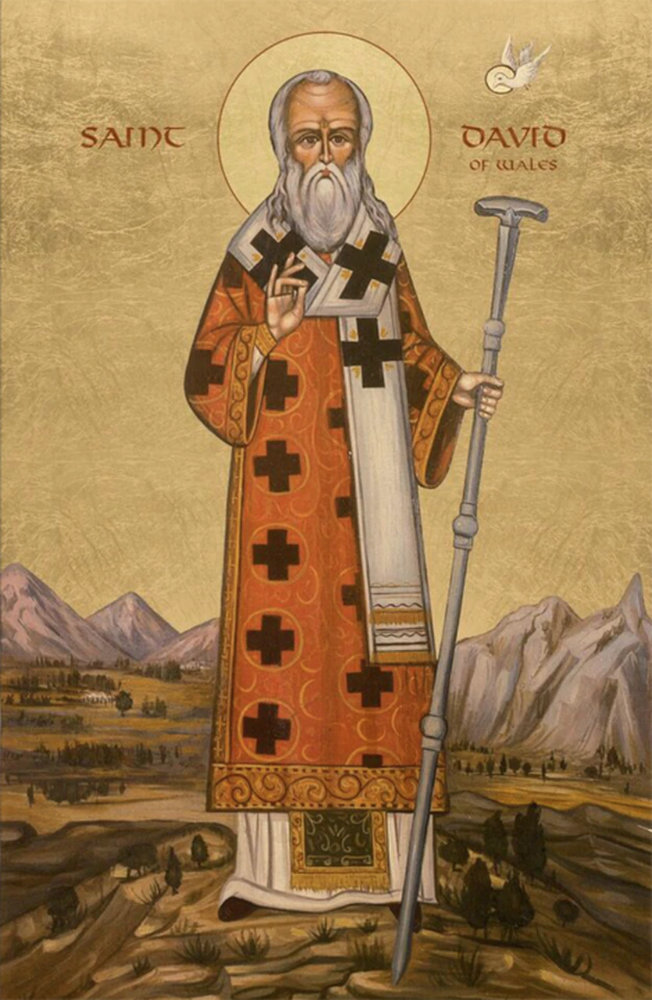St David of Wales
The earliest known manuscript of the Life of St David is the text written by Rhygyfarch in circa 1090, although David was born some six centuries earlier.
There are previous references to St David in various calendars and he does seem to have been commemorated liturgically on 1 March by the latter part of the 8th Century. Thus much of the following must be based on oral tradition. Modern historians are often sceptical of any details that cannot verified from contemporary documentation. There is no easy answer to this problem.
Tradition records that David was the son of St Nonna and that his birth had been foretold by St Patrick. David’s birth, possibly at Henfynw (now the town of St David’s), happened during a great storm but the place of his birth shone with light. At his baptism, David was held by a blind monk who subsequently received his sight. David’s education was in the hands of St Polin, whose blindness was also healed by the prayers of St David.
Having completed his education and been ordained as a priest, David set out on his travels. He is credited as the founder of several monasteries, including the one where the present-day St Davids Cathedral now stands. It was established despite fierce opposition from a local chieftain, Bwya, a pagan who called upon his druids to drive out the saint. When St Davids prayers triumphed over the incantations of spells of the druids, Bwya was converted and accepted baptism.
St Davids monastic regime, being very strict, was strikingly similar to the lifestyle of the monks of the Egyptian desert. His monks engaged in hard physical labour and lived on a diet of bread, vegetables and water. However, there was no shortage of vocations. St David is sometimes known The Waterman and this may be a reference to the monastic rule about drinking only water. Another reason might be the Celtic ascetic discipline of standing in an icy cold river reciting Psalms.
St David, accompanied by St Teilo and St Padarn went on pilgrimage to Jerusalem where all three received consecration as bishops at the hands of the Patriarch. St David received four gifts from the Patriarch, a portable altar, a bell, a pastoral staff and a golden vestment.
Having returned to Wales, St David attended the great Synod of Llanddewi Brefi where he spoke with such authority that he was hailed as archbishop and his monastery given primary status. On 1 March 589 his monastery church is said to have been filled with melodies and fragrance as St David reposed and entered into his heavenly glory. He has been regarded as the Patron Saint of Wales since the 12th Century.
